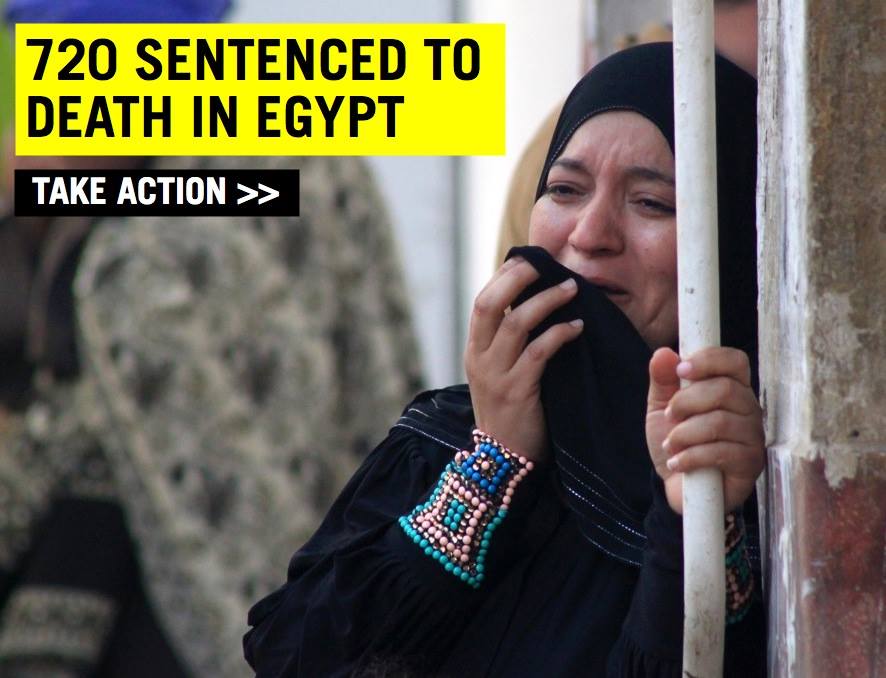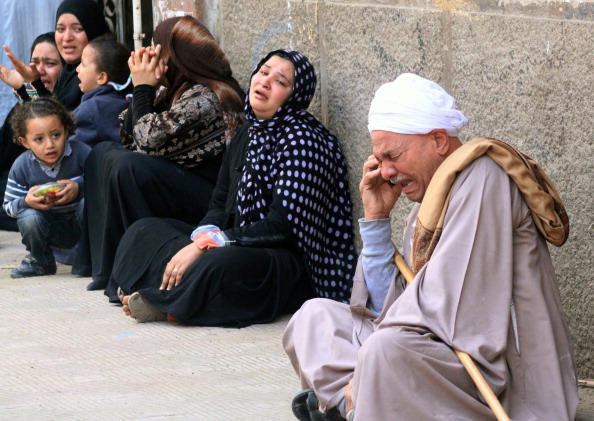
There’s a new hanging judge in Egypt, and he’s casting a chill upon the declining hopes and vision for human rights that came out of the 2011 uprising.
It’s been one month since the judge sentenced 528 people – alleged supporters of former Egyptian president Mohamed Morsi – to death. On Monday, the judge returned to the case, confirmed 37 death sentences and gave the remaining 491 people life in prison.
At the same time, he sentenced 683 more people to death in a trial that news reports stated lasted just minutes. Both cases have to do with deaths of Egyptian policemen during violence that arose in August 2013 following Morsi’s removal from office.
The two cases stand as a mockery of justice, death sentences issued on an industrial scale. The size of the injustice is raising outrage around the world, but beneath the headlines, there are important human rights messages to be learned.
Here are five things you may be missing about Egypt’s judicial crisis.

1. The Egyptian judiciary hasn’t always been thought of as the government’s lapdog. Even during the most repressive days of the Mubarak regime, elements of the Egyptian judiciary stood strong as an independent power. In fact, enough judges and lawyers caused problems for the government that to go around the judiciary it developed a system of state security and emergency courts to try civilians in violation of international legal standards.
2. The crackdown is wider than the Muslim Brotherhood. While attention has focused on the two mass death sentences of alleged Muslim Brother supporters, the government is using its full powers to harass and silence journalists and political opposition with many different perspectives.
The youthful veterans of the social media-powered Tahrir Square protests in 2011 are on the run as well. In the aftermath of Morsi’s removal, dozens of young activists have been arrested. Those targeted also include members of women’s groups, an organization protesting the continued use of military courts to try civilians, and the “January 25 Revolution” group, which helped lead the anti-Mubarak uprisings.
On Monday, the same day as the announcement of the 683 death sentences, an Egyptian judge banned the anti-Mubarak April 6 movement.
3. The United States government is not a bystander. The death sentences are an embarrassment to the Obama Administration, which just last week gave approval for the sale of Apache military helicopters, the same kind that Amnesty International documented the use of in Egyptian military surveillance of protesters in August 2013.
Following those assaults, the U.S. stated it had initiated a partial suspension of arms sales to Egypt. That sales were reinstated amid a human rights catastrophe in Egypt makes it clear that, once again in the Middle East, the United States government is willing to sacrifice human rights.
4. The trials may be hiding other abuses. Amnesty International opposes the death penalty in all cases, but in Egypt, the sentences often carry an extra nasty touch. Traditionally death sentences are tied to a range of other human rights abuses, most notably torture, prolonged administrative or incognito detention and unfair trials.
5. This is not the end of the Egyptian uprising. The mood of the activists in Egypt is somber, but they haven’t given up.
Egyptian activists only need to look nearby in the region, toward Tunisia, to see a case in which the 2011 uprising appeared to be headed to chaos just a year ago following two high-profile political assassinations. Now a national unity government is building upon a new constitution that may herald a new era for human rights. Even in this dark time, a different road for Egypt still remains possible.
